Culture & Lifestyle
An array of trailblazing women—from one of Nepal’s first radio presenters to its first circus performer
On the occasion of International Women’s Day, the Post talks to five pioneering women who have made strides in their respective fields.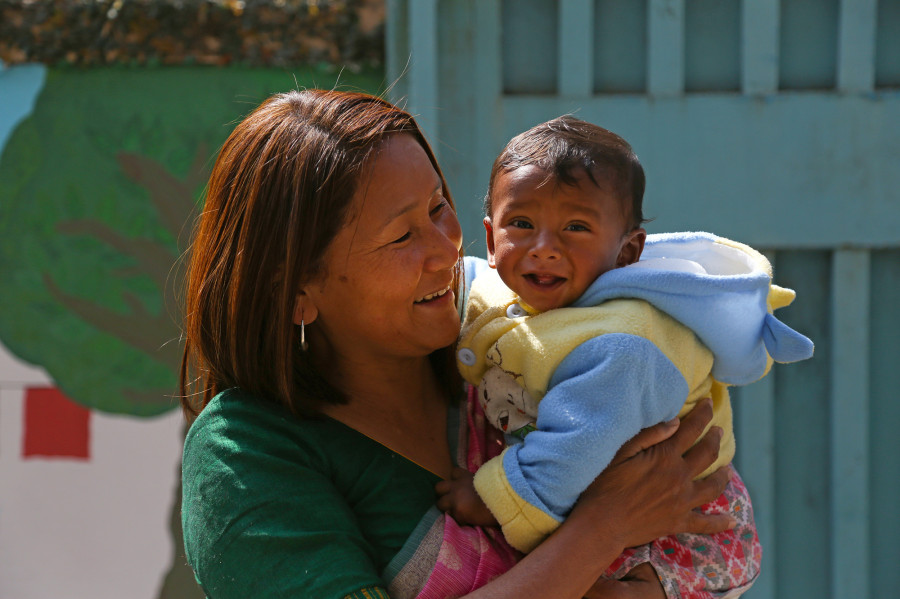
Post Report
‘My work is my power’
Indira Rana Magar, social worker
“I have never wasted my time flattering others, for me my work is my power, and I have always worked fearlessly,” says Indira Rana Magar, founder of Prisoners Assistance Nepal, one of the first non-profits established in Nepal that shelters children of people who are in prisons.
Currently, there are more than 200 children in her 11 shelter homes. She’s also taking care of the education of another 300 children outside of her shelter homes.
Magar is swift and straightforward, a no-nonsense person. She recently made it to the top three finalists of The One Rotary 3450, an international humanitarian award, but such accolades don’t mean much to her. “It’s my work that is valuable to me. But for the world outside, these certificates are validation for my credibility,” she says. “These accolades support my stance. But I also know that no matter how many awards I win, when I meet the people in prison there is a different reality of life—from which I have to protect them.”
Magar’s days are spent frequenting jails, talking with prisoners and working with them to reintegrate them back to society. Many women prisoners in the process of reintegration have abandoned their children with Magar, fleeing after getting out of prisons. Magar calls them her own now. “You can’t blame them for their choices. They don’t know how to cope with their life, let alone their children,” she says.
For the prisoners, Magar is a daughter, a didi and a mother. For the last two decades, her organisation has also been working to prevent crime and to put an end to the stigma associated with children of prisoners. But throughout her journey, people have criticised her for taking sides with offenders. “People refuse to see that it’s not about taking sides with them. It’s about helping these prisoners be better humans,” she says.
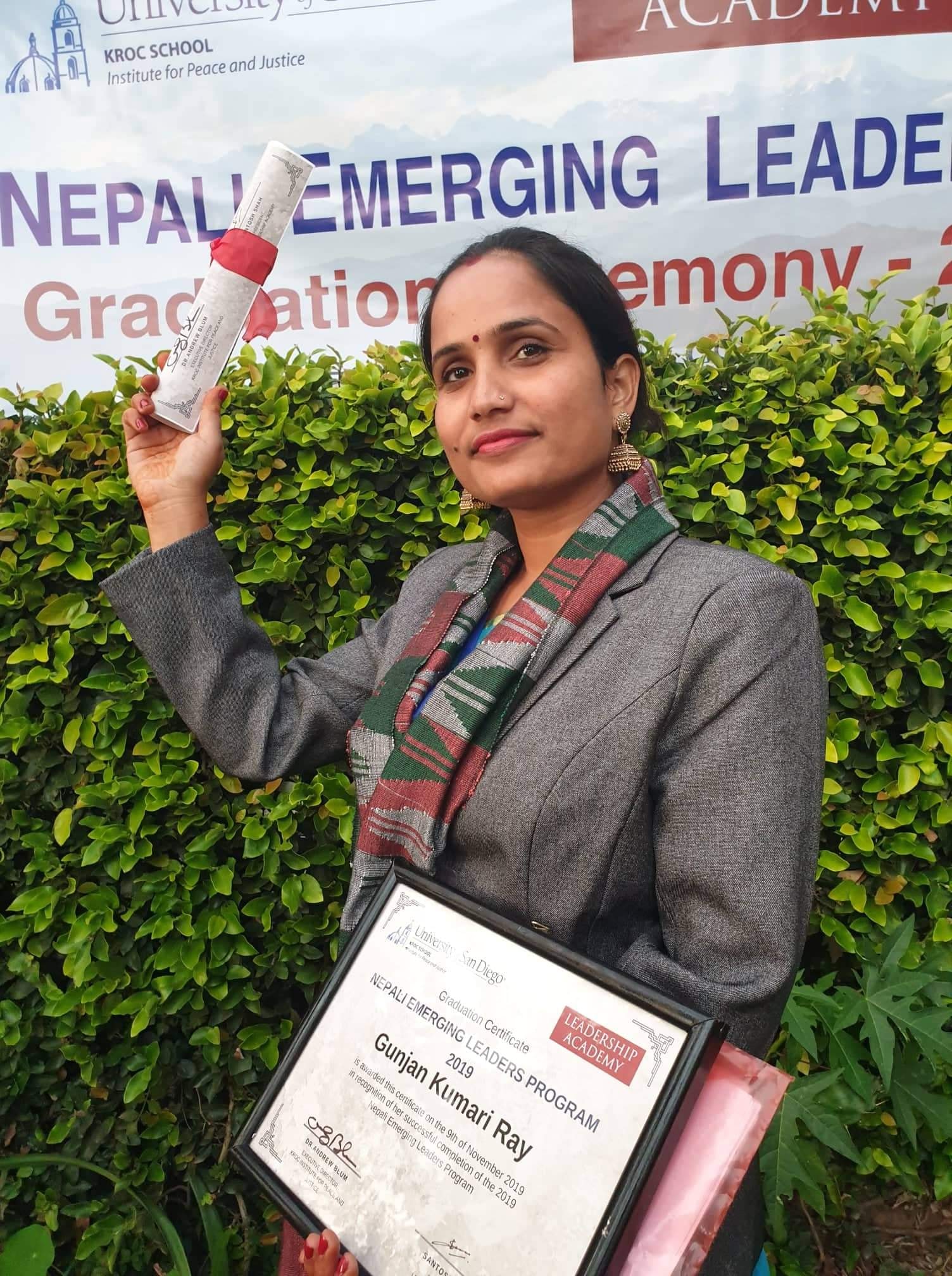
A leader through and through
Gunja Ray, social activist/mediator
As soon as she finished her high school, Gunja Ray stepped into the media world. Her first job was as a reporter for Radio Janakpur, in 2007. She then went on to work as a reporter for Antenna Foundation Nepal and Rastriya Samachar Samiti, covering social injustice issues.
“People would discourage me from working as a reporter. Even my own parents hid the fact from my husband when we were about to get married,” says Ray. “Reporting and travelling, they would say, was not a woman’s job.”
But despite growing up in a conservative Madhesi society, Ray’s ideals were always about fighting against the establishment, particularly against social injustices and patriarchal boundaries. “Women, particularly in my community, are so accustomed to injustices that they do not even question it. But that’s not how a society will prosper, not when one steps on the other to go ahead,” says Ray.
And as she got more and more involved in social issues—of child marriage, domestic violence, women empowerment—she started stepping into advocacy and worked as a mediator with the Dhanusha District Court. That was until she was asked to resign following a Facebook post she had shared about marking a complete blackout on Constitution Day, to express solidarity with the Madhes’s resistance over the constitution. “This incident made me realise how deeply corrupt and unjust our society was, where opposing voices are always so easily silenced,” she says.
Today, she is the President of Siya Foundation, a non-profit that works for women empowerment and advocates for women’s rights working for women justice as well as social justice in Dhanusha and Mahottari. To complement her Master’s in Education degree, she is currently pursuing a Bachelor's degree in law, as she hopes to take up advocacy full time someday.
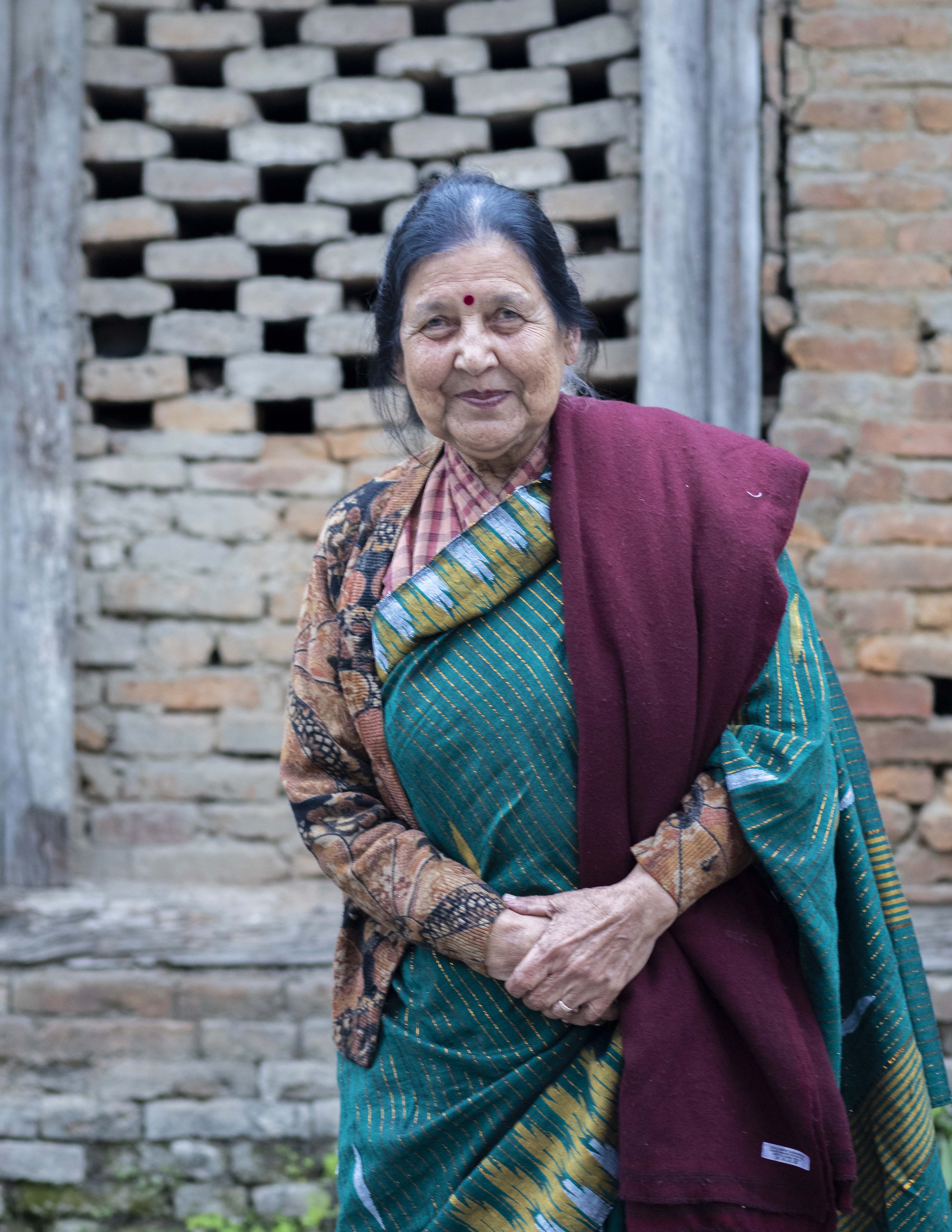
Art as a medium of giving back
Urmila Upadhyay Garg, artist
Urmila Upadhyay Garg is a woman with many talents. An artist, a painter, an etcher and a social worker, Garg, now 81, has devoted her life to the arts.
And whenever Garg speaks about art, she does so with enthusiasm and spark. When she was nine, she was enrolled in the Gandhi Ashram of Wardha, India, in 1948. There she learned the values that she still stands by today. Garg also spent a lot of time in Paris where she learnt the art of etching under the tutelage of British painter and printmaker Stanley William Hayter.
When she painted, Garg’s works were bought by the likes of Kaiser Shumsher Jang Bahadur Rana and king Mahendra. “They loved my work,” says Garg. “This one time, king Mahendra bought around 50 paintings from one of my exhibitions. I was truly honoured when that happened.”
Then, she took additional classes in tapestry-weaving and textile-dyeing, skills that were to become her medium for social work. “At the Gandhi Ashram, I learnt a lot about empathy,” she says. “As an artist, my art cannot change the lives of people, which is why I got into tapestry, textile and ceramics, to teach people these artforms so that they could make a living.”
After returning to Nepal, Garg started to work with the government to empower Nepali women. But not everyone was convinced. “When we came up with the idea to make modern designs with dhaka, we were ridiculed. They told me it was a rubbish design and no one would buy it,” she says.
Her aim was to encourage people to use products available in Nepal, to empower women. And through her organisation Kalaguthi, which she established in 1977, she has been doing just that. The organisation provides training to various textile and other craft-making skills to women and youth from underprivileged communities of Nepal. “I still want to help people. That is what the Gandhi Ashram taught me, and I still live by their philosophies,” she says.
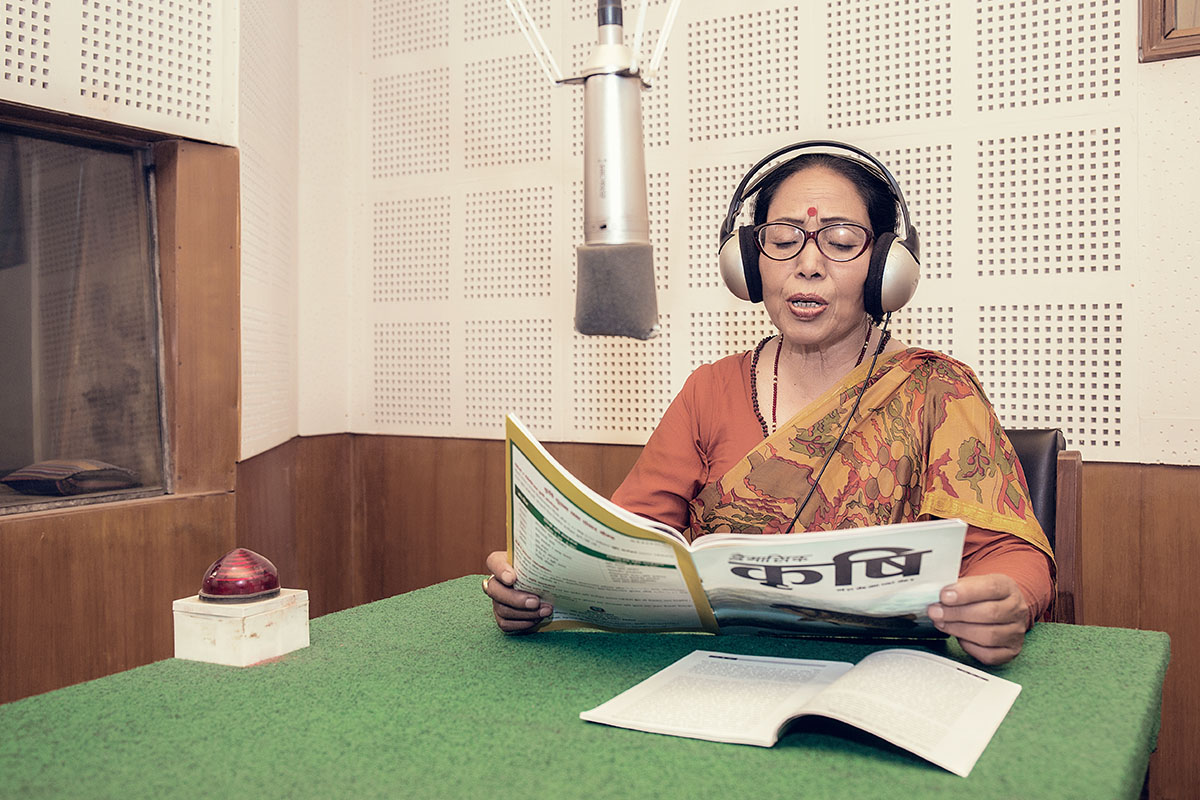
Surviving in a man’s world
Laxmi Bhusal, radio presenter
For someone who’s worked in radio for over half a century, Laxmi Bhusal still talks about it with the enthusiasm of someone who just joined the industry. “This has been a part of me for 54 years. People know me because of this. I cannot stay away from it,” says Bhusal.
Bhusal started her radio journey in 1965 when she was just 14 years old. Recruited by the late Kiran Mani Dixit, she was chosen for the role of budi ama (an old woman) for Radio Nepal’s popular show Tapaiko JTA Ra Tapaiko Budi Aama.
“I was 14 when I started doing the show. It wasn’t easy because I had to act a lot more mature than my age. But looking back, it’s been a wonderful journey,” she says.
Since then, she’s hosted multiple radio shows and acted in movies too. But unlike her male counterparts, it hasn’t been an easy ride for Bhusal. She’s had her fair share of ups and downs. From getting kicked out from her home (she says she’s has had to move almost 40 times) to being belittled for working as a radio show host by society, Bhusal overcame a lot of adversities to keep doing something she loved, which, for the most part of the modern era, was dominated by men.
“It was a different time when I started out. At work things were great, but outside of work not so much. As I didn’t get support from the family, I had to go through a lot,” says Bhusal. “It hasn’t been easy, but it’s been worth it. I feel that radio is a powerful medium. If I had a chance I would do it all over again.”
But she also takes in a lot of positives. The show is still going strong and whenever she’s on a public transport, people reach out to her and tell her how she’s impacted their lives. “They tell me not to stop working. Things like these make me proud of the fact that I've been able to touch people with what I do,” says Bhusal.
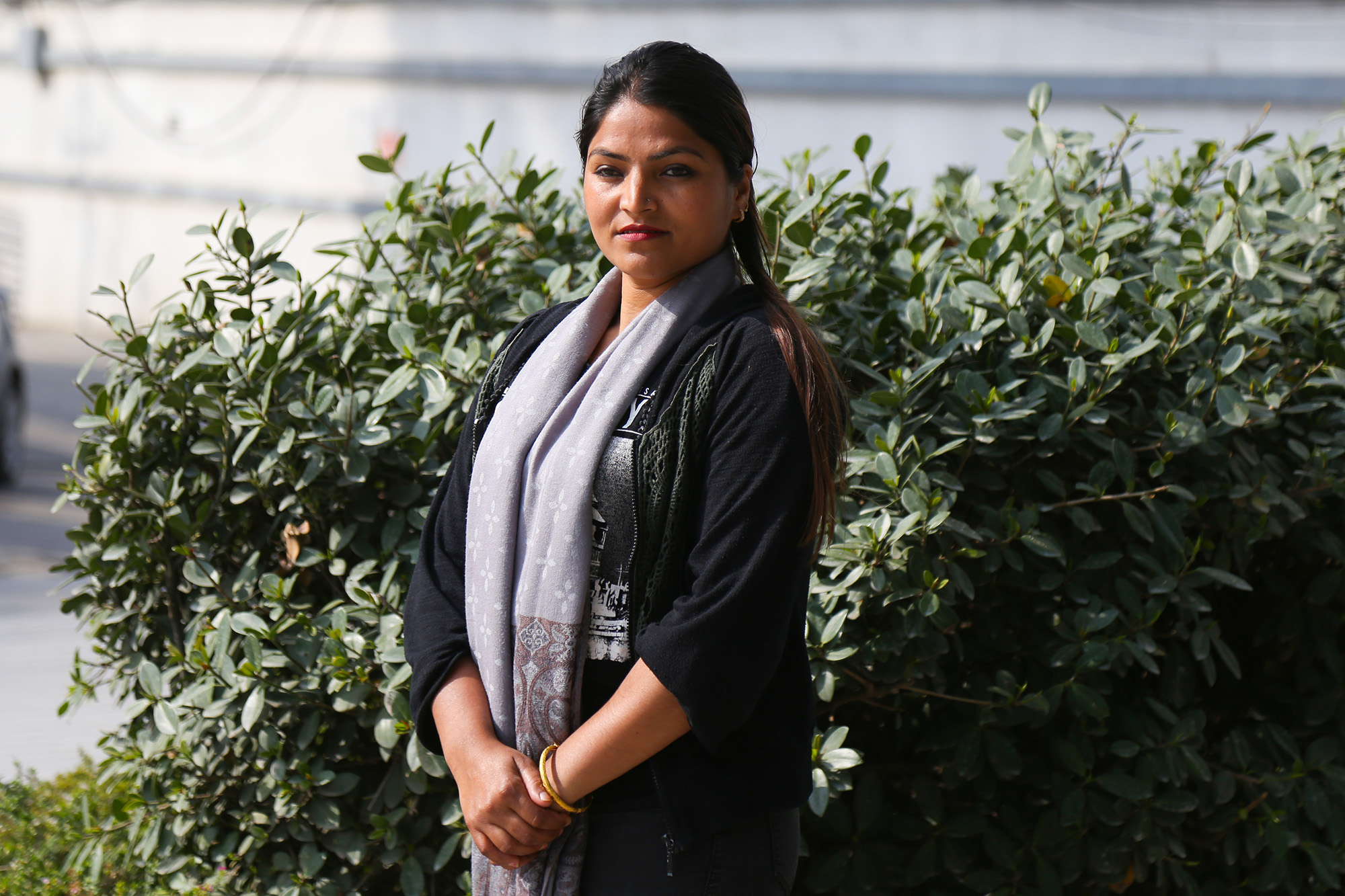
‘Life is what you make of it’
Saraswati Adhikari, circus performer
Trafficked as a child to a circus in India, Saraswati Adhikari was only 15 when she gave birth to twins. When she was 17, she gave birth to her third child. By 20, she was a widow.
Her husband, who was almost double her age, was the son of the circus owner, who had bought Adhikari from a trafficker when she was 14. “I was married and having kids and performing stunts at a time when I just wanted to play around with other children at the circus,” says Adhikari, now 31.
After being rescued in 2010, Adhikari was reunited with her family after 14 years, and given a new shot at life. And she could have taken up something else but she chose to tell stories through the circus, the same artform that had changed her entire life. That was how she, along with 13 other rescued people, opened Circus Kathmandu, Nepal’s first contemporary circus.
“I had fallen in love with the circus the first time I ever saw one, back home in Hetauda. The costumes and the makeup enchanted me. I wanted to be just like the beautiful women I saw, hanging from a trapeze, performing,” says Adhikari.
“Despite all that has happened in my life, the circus is what has given me an identity. And through it, I wanted to speak about social evils and spark conversation," she says. And that is what she did, by performing with her team across the country and around the world—to Norway, Australia, the UK, Denmark, Dubai—sharing stories of trafficking through her circus, and training young performers.
“People are always complaining about the little complications in life. But life is what you make of it, no matter what it throws at you,” she says. Right now, as a single mother, Adhikari's biggest concern is getting citizenship for her three sons. "My husband was Indian and my children could acquire citizenship through him but they want to take citizenship through me, but as we all know that's easier said than done," she says. “You have to fight your way through in this man’s world.”




 9.83°C Kathmandu
9.83°C Kathmandu
.jpg&w=200&height=120)













